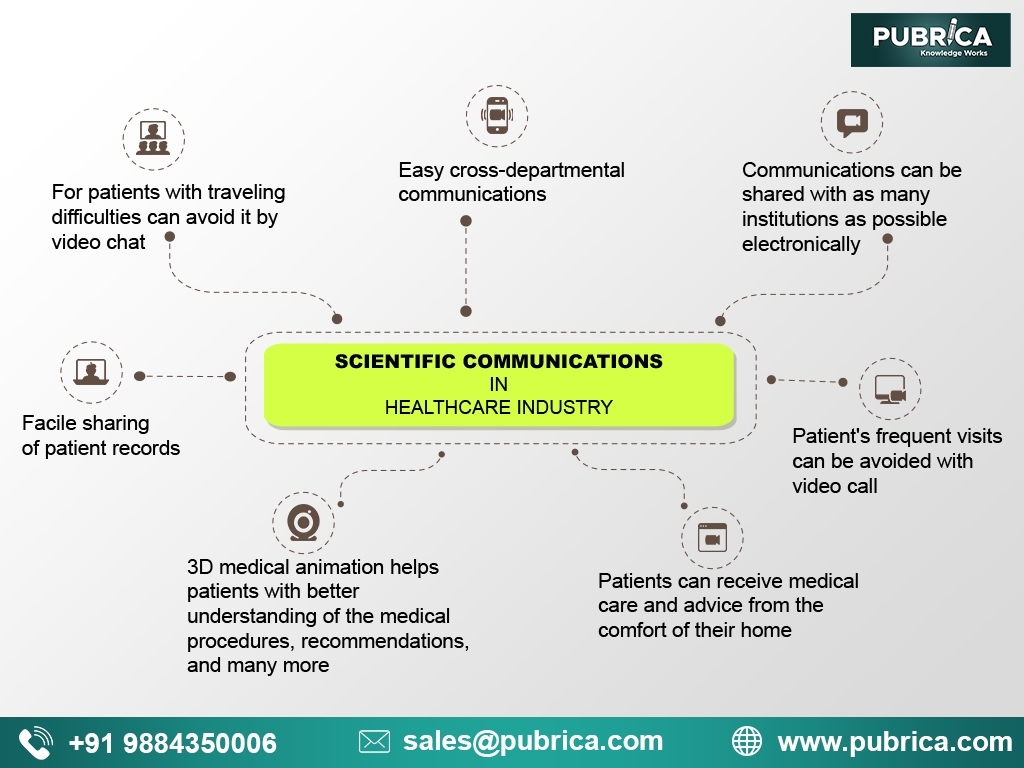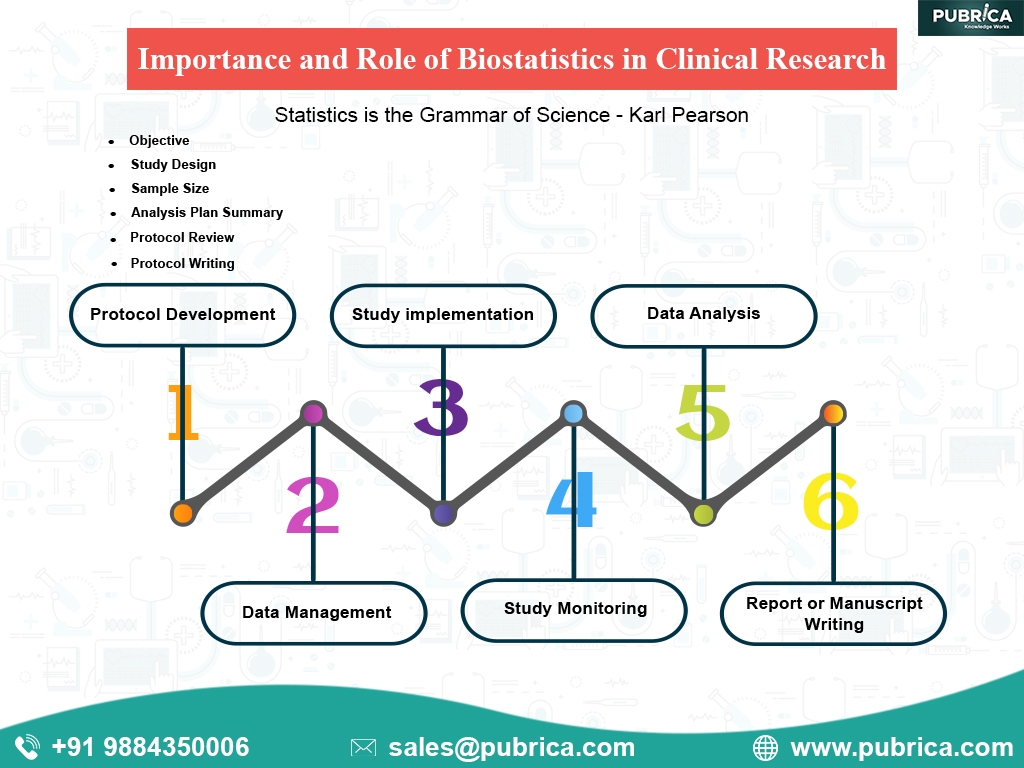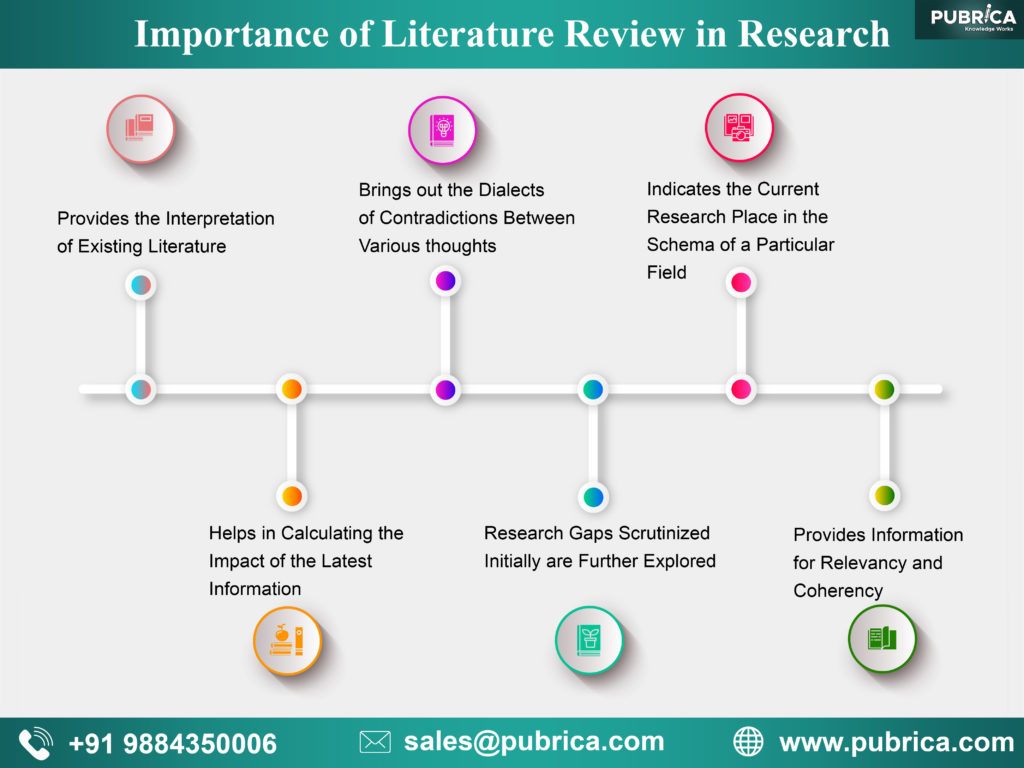
The importance of scientific communication in the healthcare industry
August 8, 2019
The Importance and Role of Biostatistics in Clinical Research
August 17, 2019“A substantive, thorough, sophisticated literature review is a precondition for doing substantive, thorough, sophisticated research”. Boote and Baile 2005
Authors of manuscripts treat writing a literature review as a routine work or a mere formality. But a seasoned one knows the purpose and importance of a well-written literature review. Since it is one of the basic needs for researches at any level, they have to be done vigilantly. Only then the reader will know that the basics of research have not been neglected.

The aim of any literature review is to summarize and synthesize the arguments and ideas of existing knowledge in a particular field without adding any new contributions. Being built on existing knowledge they help the researcher to even turn the wheels of the topic of research. It is possible only with profound knowledge of what is wrong in the existing findings in detail to overpower them. For other researches, the literature review gives the direction to be headed for its success.
The common perception of literature review and reality:
As per the common belief, literature reviews are only a summary of the sources related to the research. And many authors of scientific manuscripts believe that they are only surveys of what are the researches are done on the chosen topic. But on the contrary, it uses published information from pertinent and relevant sources like
- Scholarly books
- Scientific papers
- Latest studies in the field
- Established school of thoughts
- Relevant articles from renowned scientific journals
and many more for a field of study or theory or a particular problem to do the following:
- Summarize into a brief account of all information
- Synthesize the information by restructuring and reorganizing
- Critical evaluation of a concept or a school of thought or ideas
- Familiarize the authors to the extent of knowledge in the particular field
- Appraise
- Identify
- Evaluate
- Encapsulate
- Correlate
- Compare & contrast
By doing the above on the relevant information, it provides the reader of the scientific manuscript with the following for a better understanding of it:
- It establishes the authors’ in-depth understanding and knowledge of their field subject
- It gives the background of the research
- Portrays the scientific manuscript plan of examining the research result
- Illuminates on how the knowledge has changed within the field
- Highlights what has already been done in a particular field
- Information of the generally accepted facts, emerging and current state of the topic of research
- Identifies the research gap that is still unexplored or under-researched fields
- Demonstrates how the research fits within a larger field of study
- Provides an overview of the sources explored during the research of a particular topic
Importance of literature review in research:
The importance of literature review in scientific manuscripts can be condensed into an analytical feature to enable the multifold reach of its significance. It adds value to the legitimacy of the research in many ways:
- Provides the interpretation of existing literature in light of updated developments in the field to help in establishing the consistency in knowledge and relevancy of existing materials
- It helps in calculating the impact of the latest information in the field by mapping their progress of knowledge.
- It brings out the dialects of contradictions between various thoughts within the field to establish facts
- The research gaps scrutinized initially are further explored to establish the latest facts of theories to add value to the field
- Indicates the current research place in the schema of a particular field
- Provides information for relevancy and coherency to check the research
- Apart from elucidating the continuance of knowledge, it also points out areas that require further investigation and thus aid as a starting point of any future research
- Justifies the research and sets up the research question
- Sets up a theoretical framework comprising the concepts and theories of the research upon which its success can be judged
- Helps to adopt a more appropriate methodology for the research by examining the strengths and weaknesses of existing research in the same field
- Increases the significance of the results by comparing it with the existing literature
- Provides a point of reference by writing the findings in the scientific manuscript
- Helps to get the due credit from the audience for having done the fact-finding and fact-checking mission in the scientific manuscripts
- The more the reference of relevant sources of it could increase more of its trustworthiness with the readers
- Helps to prevent plagiarism by tailoring and uniquely tweaking the scientific manuscript not to repeat other’s original idea
- By preventing plagiarism, it saves the scientific manuscript from rejection and thus also saves a lot of time and money
- Helps to evaluate, condense and synthesize gist in the author’s own words to sharpen the research focus
- Helps to compare and contrast to show the originality and uniqueness of the research than that of the existing other researches
- Rationalizes the need for conducting the particular research in a specified field
- Helps to collect data accurately for allowing any new methodology of research than the existing ones
- Enables the readers of the manuscript to answer the following questions of its readers for its better chances for publication
- What do the researchers know?
- What do they not know?
- Is the scientific manuscript reliable and trustworthy?
- What are the knowledge gaps of the researcher?
22. It helps the readers to identify the following for further reading of the scientific manuscript:
- What has been already established, discredited and accepted in the particular field of research
- Areas of controversy and conflicts among different schools of thought
- Unsolved problems and issues in the connected field of research
- The emerging trends and approaches
- How the research extends, builds upon and leaves behind from the previous research
A profound literature review with many relevant sources of reference will enhance the chances of the scientific manuscript publication in renowned and reputed scientific journals.
References:
http://www.math.montana.edu/jobo/phdprep/phd6.pdf
Tags:
journal Publishing services | Scientific Editing Services | Medical Writing Services | scientific research writing service | Scientific communication services
Related Topics:
Scientific Research Paper Writing
